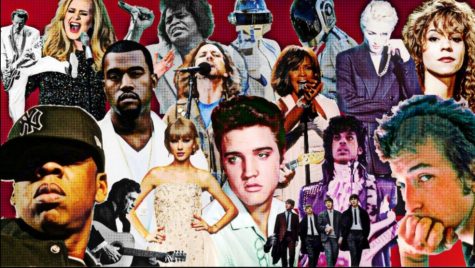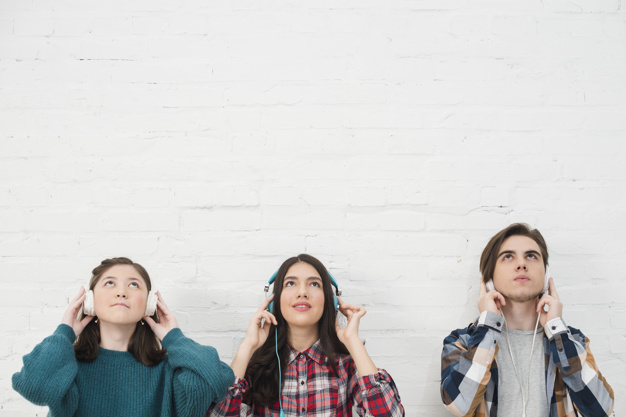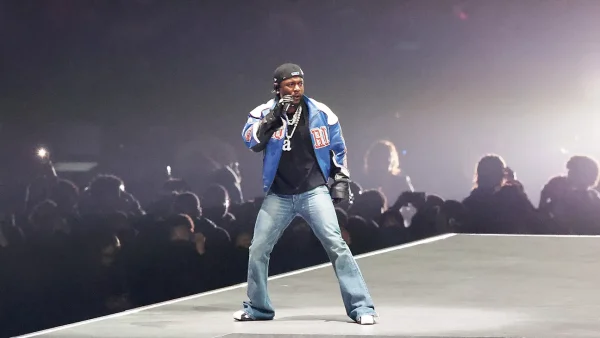Musical influence on teenagers exponential in today’s society
Music has been around for centuries and has become an important part of many people’s lives. Teenagers, whether it be at school or at home, listen to music wherever and whenever they can get the chance. A survey conducted by Common Sense Media revealed that 82 percent out of 16,000 American 8-18 year olds listen to music everyday. It’s clear that music is very important to the everyday lives of many teens, but why is that?
Music can be very powerful and is capable of making people feel a multitude of emotions in only the span of a couple of minutes. Many teens enjoy the experience of listening to music because it allows them to explore their feelings and emotions in a safe way. They get to experience and express many emotions properly, without having to deal with them, face on, in the real world. The ability to experience, express, and explore emotions through music can be very beneficial.
On the other hand, this can also be considered harmful. The power of music and its influence on teens has been a topic of discussion among many adults. Some see music as a beneficial way for young teens to express themselves and others see it as a harmful influence on the people, especially when it influences a developing teenager.
Many factors can play a role and contribute to whether or not music has a good or bad influence on teens. The American Academy of Pediatrics (A.A.P) states, “The emotional response to music depends on the way it is presented…it is closely related to the age of the listener and the experiences or preconceived ideas they bring to the music.” Teens having the ability to pick and choose the music they would like to listen to should come with responsibility. Music should be positive, but music that has aggressive, intimidating, or sad lyrics can lead to negative mood swings and disruptive behavior. “Negative and destructive themes of some kinds of music can be inappropriate…some lyrics can be particularly troublesome,” says The American Academy of Child and Adolescent Psychiatry (A.A.C.A.P).
 Rap and Heavy Metal are two genres that many adults see as a “destructive” music genre for teens. A.A.P said, “Rap music has been characterized by the presence of explicit sexual language in its lyrics as well as messages of violence, racism, homophobia, and hatred toward women.”
Rap and Heavy Metal are two genres that many adults see as a “destructive” music genre for teens. A.A.P said, “Rap music has been characterized by the presence of explicit sexual language in its lyrics as well as messages of violence, racism, homophobia, and hatred toward women.”
“Fans of heavy metal and rap music showed a greater tendency to engage in reckless behavior than their peers who were not fans of those types of music.”
Similar to the negative influences, there are many factors that contribute to whether or not music has a positive influence on teenagers. Music can be a tool that teenagers can use to encourage creativity, express and explore their emotions.
Many artists in today’s world use their music to spread positive messages to their fans and listeners. Artists throughout all genres have used their platforms to spread positivity. For example, BTS is a very popular and well known K-Pop group that is famous for their extremely positive, relatable, and uplifting music. “Their music is very comforting to me and is a reminder that it’s okay to feel the way I do sometimes.” said sophomore Yoseli Carbajal. “The tone of the music and the lyrics of their songs are very calming, relatable, and inspiring to listen to and it’s clear why they have as many fans as they do. That’s why I’m a fan myself.”
The instruments, rhythm, and feeling of a certain song can also create a positive influence for teens. This can also lead to less distractions and more concentration in school, at home, and with friends and family. “Music — classical music, specifically — can help your brain absorb and interpret new information more easily,” says a study conducted in 2007 by Stanford University School of Medicine (SUSM). “Researchers found evidence to suggest that music can engage your brain in such a way that it trains it to pay better attention to events and make predictions about what might happen.”
Although there is no definitive answer as to whether or not music has a positive or negative influence on teens, there is evidence that shows that the influence music has on teens can be manipulated and changed for the better. Without music not only teens, but all music listeners would have difficulty expressing and discovering themselves as an individual. But, it all depends on what direction they decide to take on their music listening experience.
Your donation will support the student journalists of Parkdale High School. Your contribution will allow us to cover our annual website hosting costs and publish some printed editions, as well.

This is junior Enrique Arteaga Lucero. He’s only been on staff for less than a year, but nevertheless he’s a great addition. He contributes to the...







